The conference are attended by Ms Phạm Thị Thanh Tùng, Deputy Director of the Credit for Economic Sectors Department, State Bank of Vietnam (SBV), Ms Huỳnh Nhật Lệ, Deputy Director of the Department of Banking Supervision of Credit Institutions, SBV; Mr. Amit Ganju, Managing Director – Asia Pacific Business & Relationship Management, Fitch Ratings; Willie Tanoto, Senior Director –Asia Pacific Financial Institutions, Fitch Ratings and Dr. Nguyễn Quốc Hùng, Vice-Chairman cum Secretary General of VNBA. They participated alongside numerous domestic credit institutions representatives and international experts.
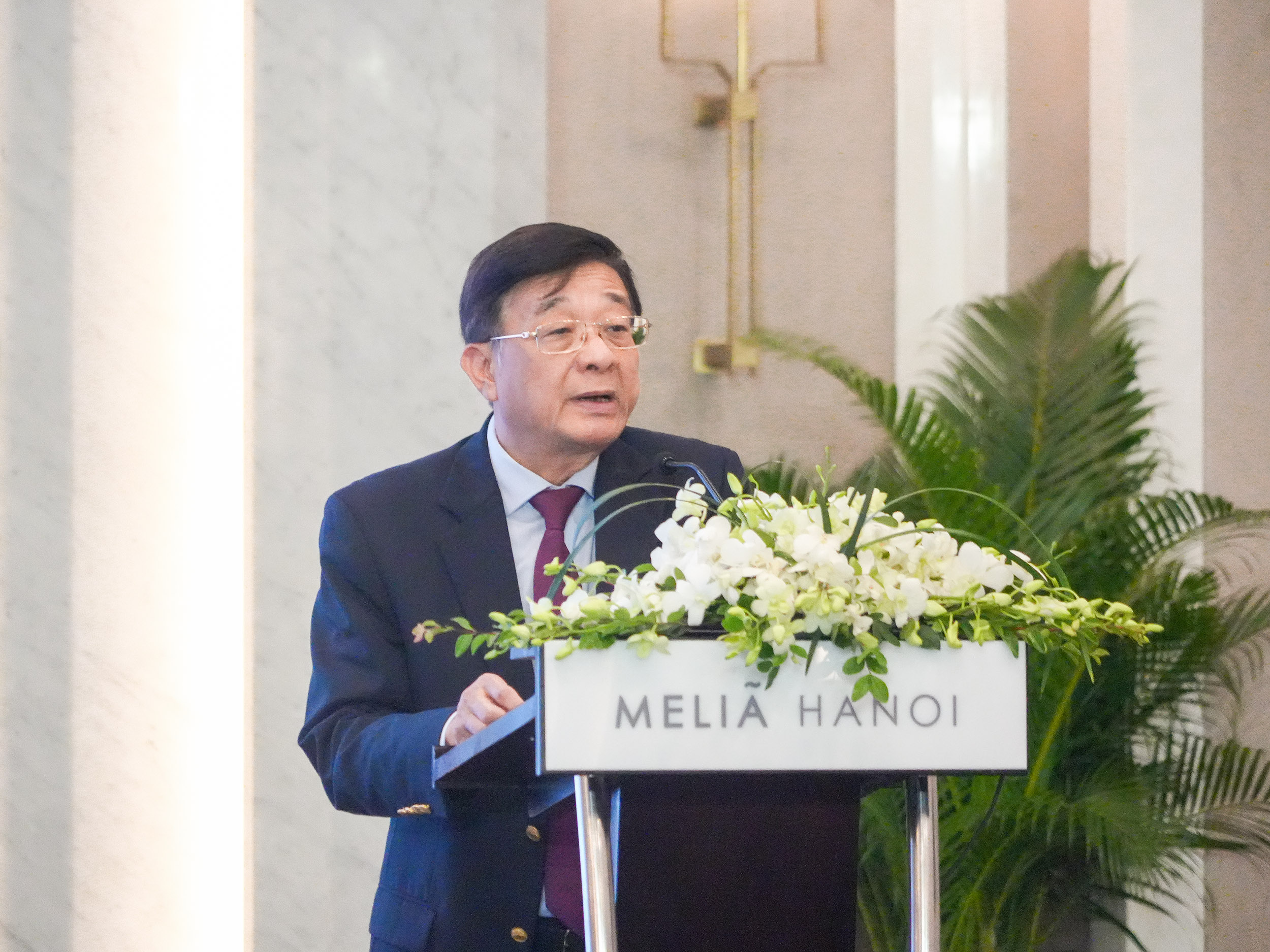
Dr. Nguyễn Quốc Hùng, Vice-Chairman cum Secretary General of VNBA
At the opening remarks, Amit Ganju reaffirmed Fitch’s commitment to Vietnam as a key market:
“Fitch Ratings is honoured to partner with the Vietnam Banks Association on this forum… Vietnam is one of our priority markets, with over 20 years of sovereign and corporate credit-ratings activity here.”
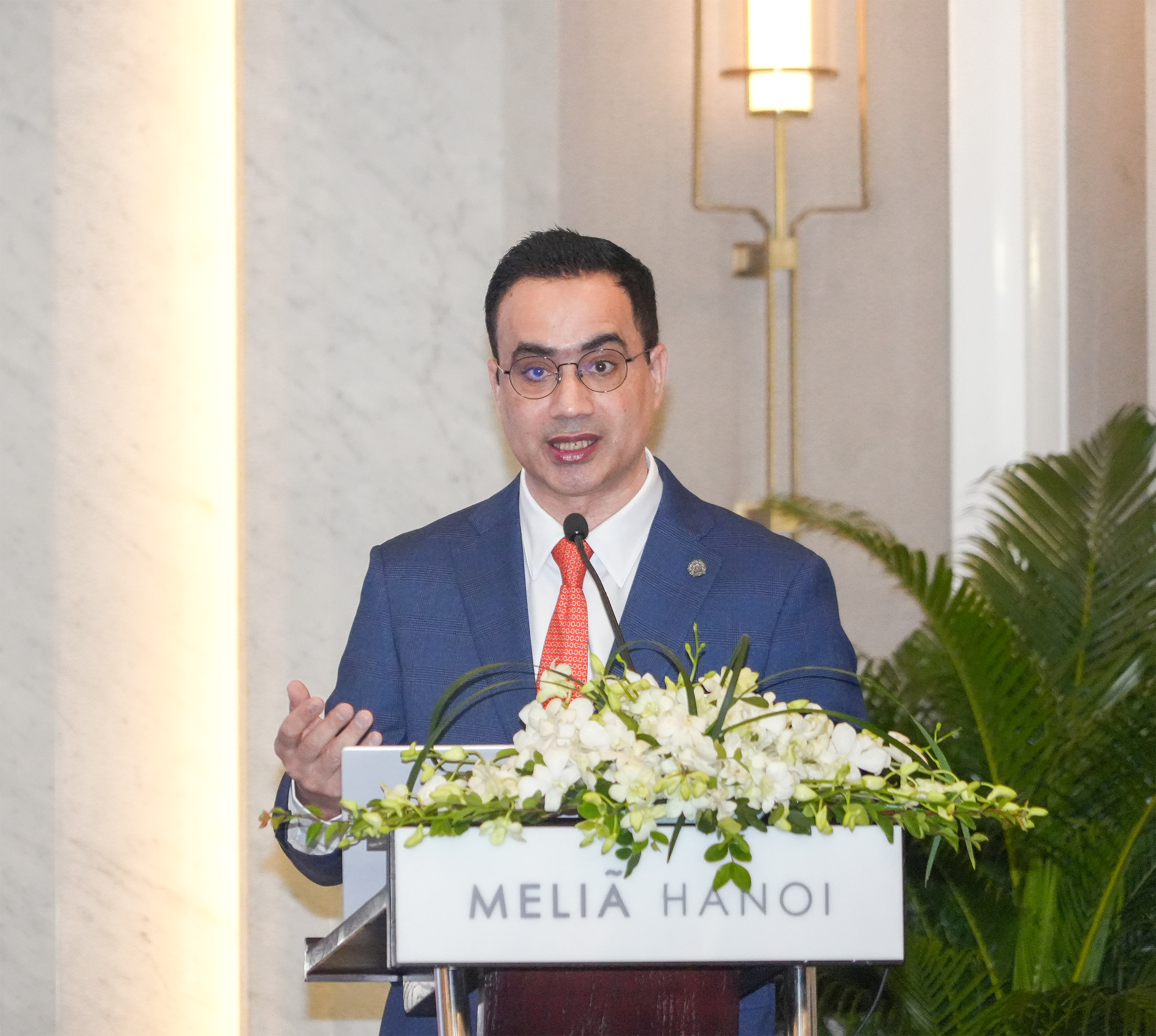
Mr. Amit Ganju, Managing Director – Asia Pacific Business & Relationship Management, Fitch Ratings
He noted that Fitch has issued 28 public ratings in Vietnam to date—including 15 Viet Nam-listed commercial banks—and has also developed its ESG and sustainable-finance arm, Sustainable Fitch, which provides independent assessments of green bonds, sustainability bonds and ESG solutions.
Senior Director Willie Tanoto added:
“Vietnam is among the fastest-growing economies in the region … according to Fitch’s assessment, Vietnam’s sovereign rating has been upgraded three times since 2014 and is now only one notch away from investment grade.”
He emphasised the progress in banking governance, financial transparency and non-performing-loan (NPL) handling, noting that most banks have adopted Basel III standards and publish internationally-comparable financial statements.
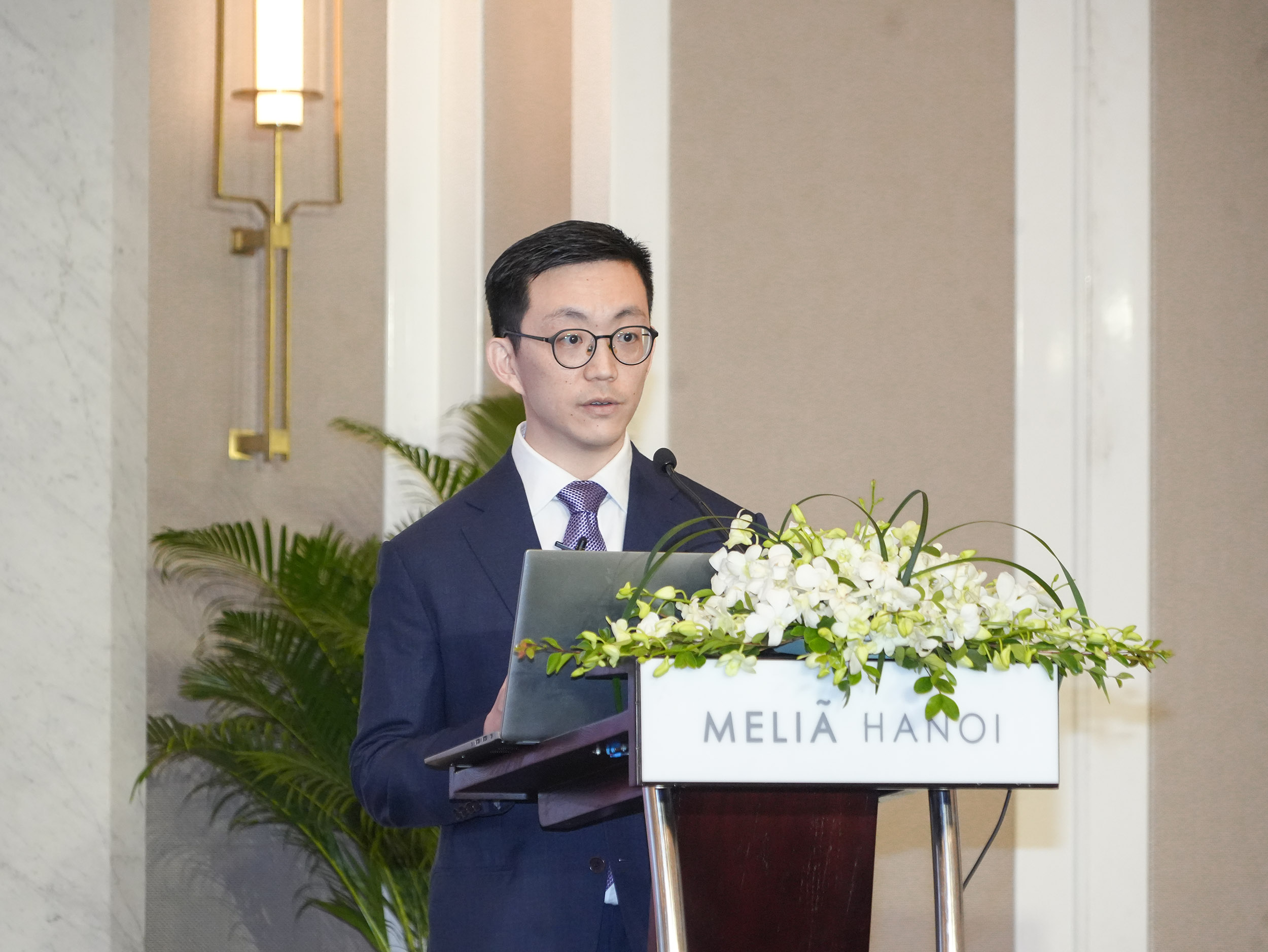
Senior Director Willie Tanoto, Fitch ratings
However, he also sounded a cautionary note:
“High growth and high leverage are two sides of the same coin. Vietnam’s banking sector needs to continue strengthening capital and enhancing risk governance to ensure sustainable growth.”
Combining credit ratings and sustainable finance – A dual foundation
Dr. Nguyễn Quốc Hùng stressed the strategic importance of credit ratings and sustainable finance:
“Credit ratings and sustainable finance are two core dimensions for the operations of the banking system. A banking system with high creditworthiness, transparently assessed, builds investor confidence; a banking system developed sustainably ensures long-term prosperity. Combined, they form the foundation for a modern, effective and resilient financial system.”
He described credit ratings as the “financial passport” of a bank, reflecting its financial capacity, governance quality and reputation—enabling access to international capital at favourable cost.
He noted that many Vietnamese commercial banks are voluntarily engaging with international rating agencies such as Fitch, Moody’s and S&P, and that positive results to date show improvements in asset quality, capital safety and profitability.
In parallel, he explained that sustainable finance is a strategic direction for banks to support Vietnam’s net-zero emissions by 2050 commitment. Activities include: issuing green credit policies; building ESG risk-assessment frameworks; issuing green and sustainability bonds; strengthening international cooperation to mobilise green capital and learn ESG governance.
He also recognised that sustainable finance in Vietnam remains in an early stage and needs unified standard-setting, reliable ESG data and clearer policy mechanisms.
Policy direction & sectoral commitments
From the SBV side, Deputy Director Phạm Thị Thanh Tùng outlined the monetary-policy orientation for 2025: maintaining macro-economic stability, flexible interest-rate policy and supporting green and sustainable credit growth. As of end-October 2025, total credit outstanding reached VND 18 million billion (up 15.3% vs end-2024), with green credit amounting to about VND 744 thousand billion (≈ 4.2% of total), of which more than 60% is in renewable energy and green agriculture.
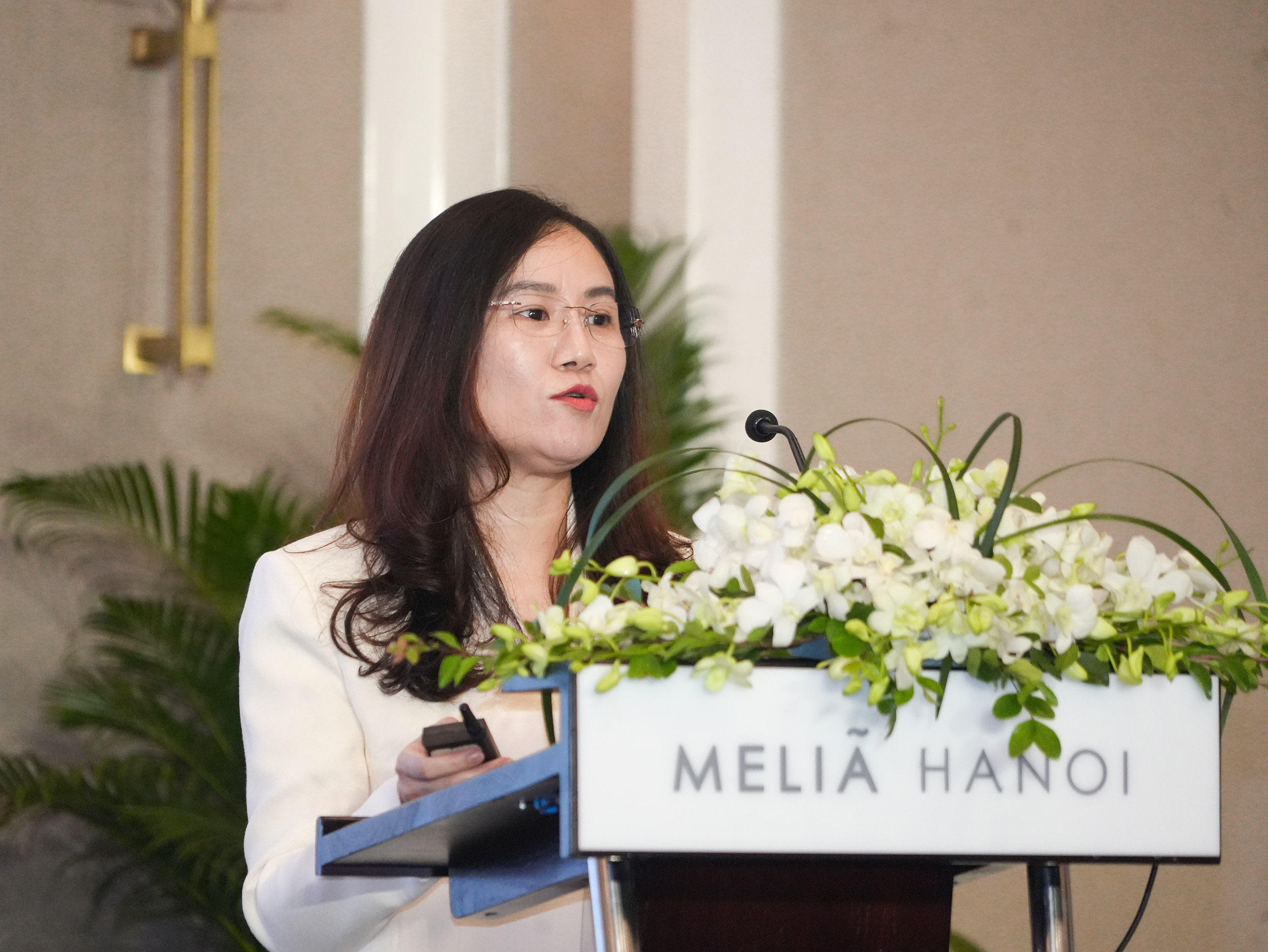
Deputy Director Phạm Thị Thanh Tùng
She added that the SBV is implementing key credit-support packages: a VND 120 thousand billion social-housing credit package; a VND 500 thousand billion package supporting infrastructure investment and digital transformation; and programmes for high-tech agriculture, high-quality rice production and rural clean water supply.
Going forward, the SBV will continue to refine the legal framework for green credit, environmental-social risk management, build ESG criteria and expand international cooperation to mobilise green funding from organisations such as World Bank (WB), Asian Development Bank (ADB), Asian Infrastructure Investment Bank (AIIB) and Japan International Cooperation Agency (JBIC).
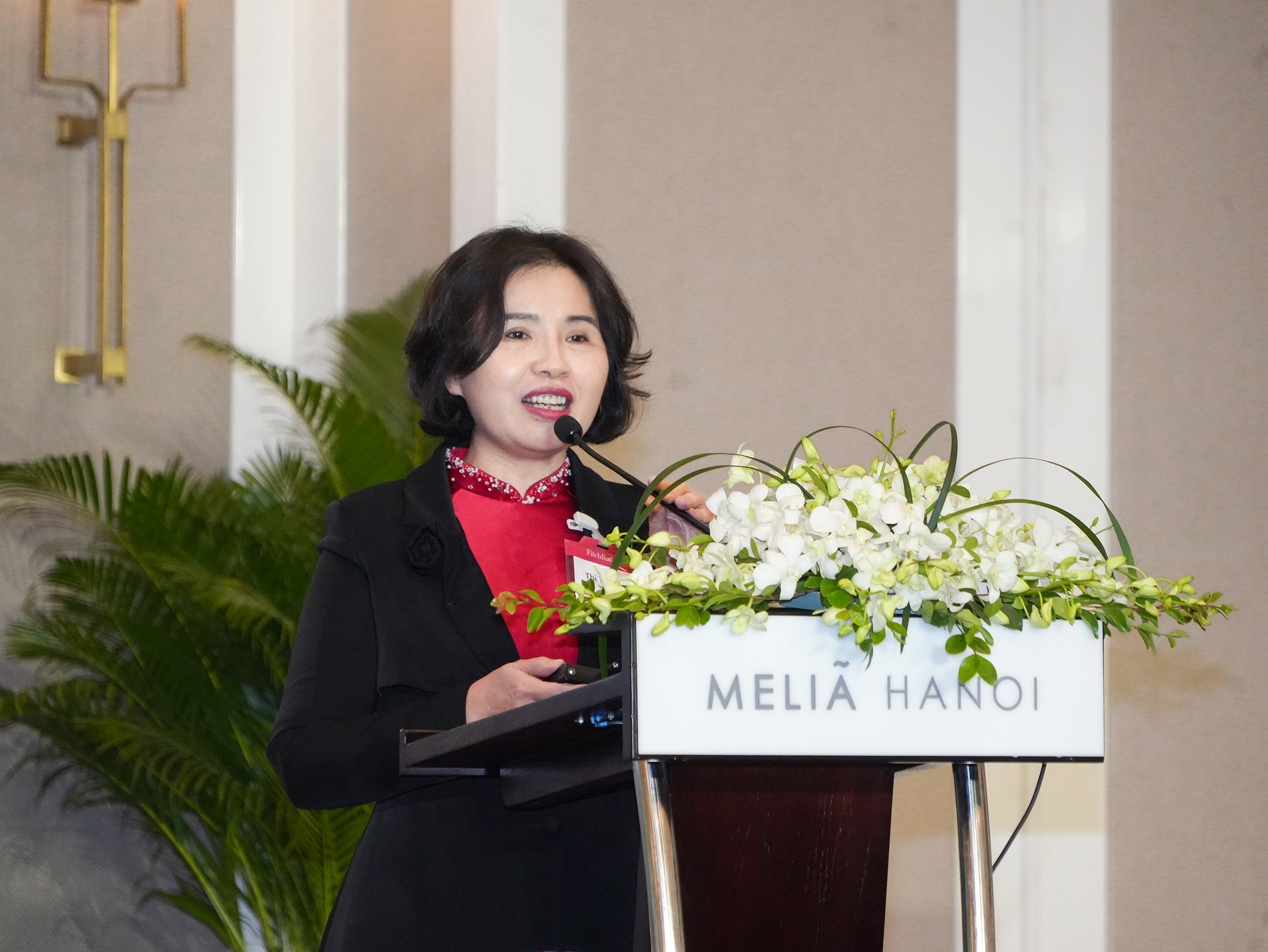
Dr. Nguyễn Thị Thu Hà (Deputy Head of ESG Steering Committee, and Director of Staff Training Academy at Agribank)
From the commercial bank perspective, Dr. Nguyễn Thị Thu Hà (Deputy Head of ESG Steering Committee, and Director of Staff Training Academy at Agribank) shared that Agribank is implementing a green-lending framework and green-credit packages: e.g., VND 50 thousand billion lending for clean agriculture and VND 30 thousand billion for one million hectares of high-quality rice in the Mekong Delta. Agribank is preparing to issue international-standard green bonds, targeting net-zero emissions by 2050.
During the “ESG: Promoting Sustainable Growth in Vietnam” panel discussion, participants from organisations including International Finance Corporation (IFC), Dragon Capital, Gaw Capital and Sustainable Fitch agreed that ESG has become a long-term strategic foundation helping banks manage risk, uplift their reputation and attract international capital.
They proposed key solutions:
- Finalise the legal framework and build a unified ESG standard set
- Improve transparency and require sustainability reporting
- Develop human resources specialised in ESG and build a culture of green risk governance throughout the financial system
- Encourage private investment and develop a green-bond market and carbon-credit market to mobilise additional funding for green growth
The panel concluded that green credit and sustainable finance are inevitable trends for Vietnam’s integration and economic development. Close coordination between Government, SBV, credit institutions, investors and international organisations will be the key to achieving Vietnam’s net-zero by 2050 goal.
The forum delivered valuable insights and helped Vietnamese banks gain a clearer, more comprehensive view on how to strengthen their credit-rating capacity, promote sustainable finance and integrate more deeply into international markets. As Dr. Nguyễn Quốc Hùng put it:
“A banking system with high creditworthiness builds investor confidence; a banking system developed sustainably ensures long-term prosperity. Together, they form the foundation for a modern, safe and global-resilient financial system.”
He reaffirmed the VNBA’s role:
“As the professional association representing the banking community, VNBA will continue to accompany its member institutions in enhancing governance, meeting international standards and pursuing sustainable development.”
VNBA News
